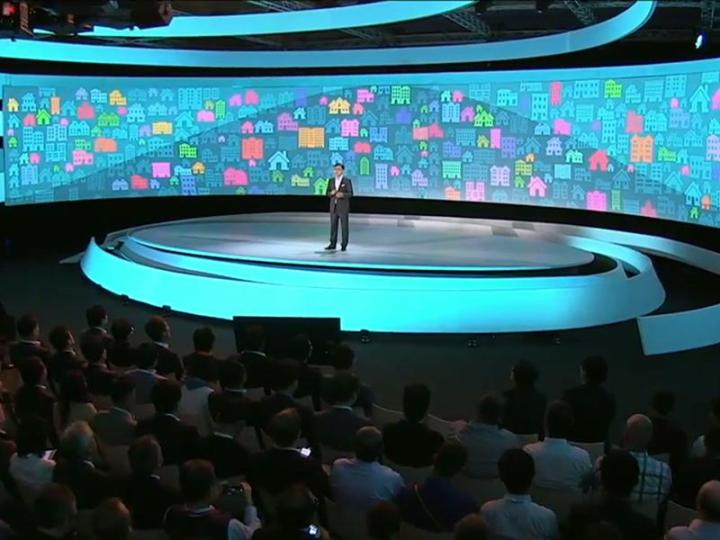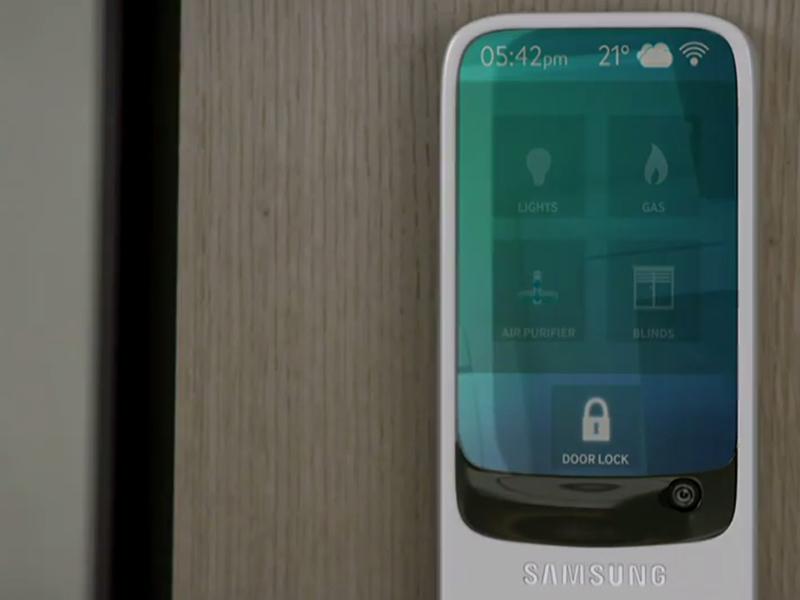

Yoon began by emphasizing the need for simple, accessible technology that anyone can use. No specific products were mentioned, but the demo videos played during the keynote showed fridges that keep track of groceries that need buying, television sets that warn of rising pollution levels and desks that have interactive, holographic displays built in.
Related: David Hasselhoff reunites with Kitt for Samsung smart home ad
“We want our homes to do more than ever before,” said Yoon. “We want the home of the future to be protective, flexible and responsive.” He said that smarter homes had to react to growing urbanisation, increased connectivity and a changing world climate. “The technology must not be overwhelming,” he continued. “It must fit into people’s lifestyles, anticipate and meet their needs, and these needs develop all the time.”
Adaptable and smart spaces
MIT Media Lab’s Kent Larson was on hand to showcase some of the ways his team are experimenting with future home technology. This primarily involved adaptable spaces: dining tables that were lowered from the roof, beds that slide out from wardrobes, smart walls that can be moved, all enabling people in smaller homes to make more use of the room that’s available.

These smart pieces of furniture will all be connected to the Internet of Things too, Larson said. Through the CityHome project and other initiatives, he’s hoping to find ways to avoid young people getting priced out of the property market in dense urban areas — even the smallest apartments can be adapted for a range of uses if the right technology is there.
Another on-stage guest was Alex Hawkinson, CEO of SmartThings, which Samsung acquired last month. He outlined his company’s goal to “turn every home into a smart home” with Samsung’s help, and explained how a burst water pipe at his holiday home in Colorado inspired him to set up SmartThings: “It’s staggering that I know what my friends are doing on Facebook but how could I not know what’s going on in my own home?”
45 million smart homes
We’ve already heard plenty about Samsung’s plans for smarter homes before of course, and Boo-Keun Yoon didn’t make any new announcements or revelations in his keynote. What was notable was the enthusiasm he showed for the technology and how focused Samsung is on making this vision a reality. Yoon said there would be 45 million smart homes in operation by 2018 in a global market worth $100 million.
“The opportunities ahead are enormous,” said Yoon, also reiterating his commitment to working with other companies along the way. “We will work with everybody who shares this vision, we will open our own standards to accelerate this process. I don’t want Samsung to be remembered as a technology company. I want us to be remembered for providing unique, tailored experiences.”
Yoon ended his 30-minute talk by highlighting the outward ripple effects of smarter homes: more efficient energy use, places that are safer to live in, improved healthcare for the elderly and the opportunity for social interactions at any time and anywhere. He called on consumers and fellow tech firms to help bring about “the biggest technological leap in the history of innovation.”


